
The importance of Search Engine Optimization (SEO) for a website cannot be emphasized enough. It is the most powerful digital marketing tool of contemporary times.
In fact, the marketing digital marketing channel that brings in the highest ROI is an organic search according to 49 % of the respondents in a survey.
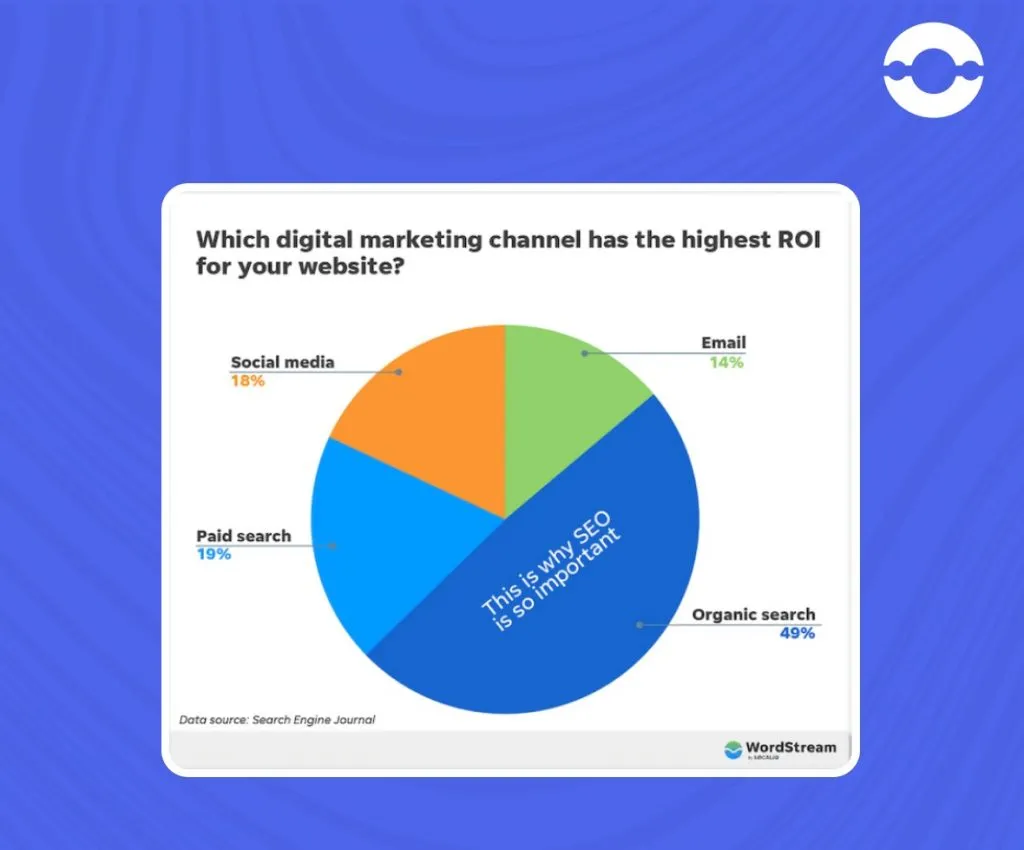
Enhancing the visibility of your website, and high SEO ranking leads to more traffic and hence, more chances of converting prospects into customers.
While there are many search engines but Google dominates them all. With 92.9% of total share, Google and search engine are synonymous terms in recent times. So, businesses need to get a higher ranking on Google in order to be more visible and engaging.
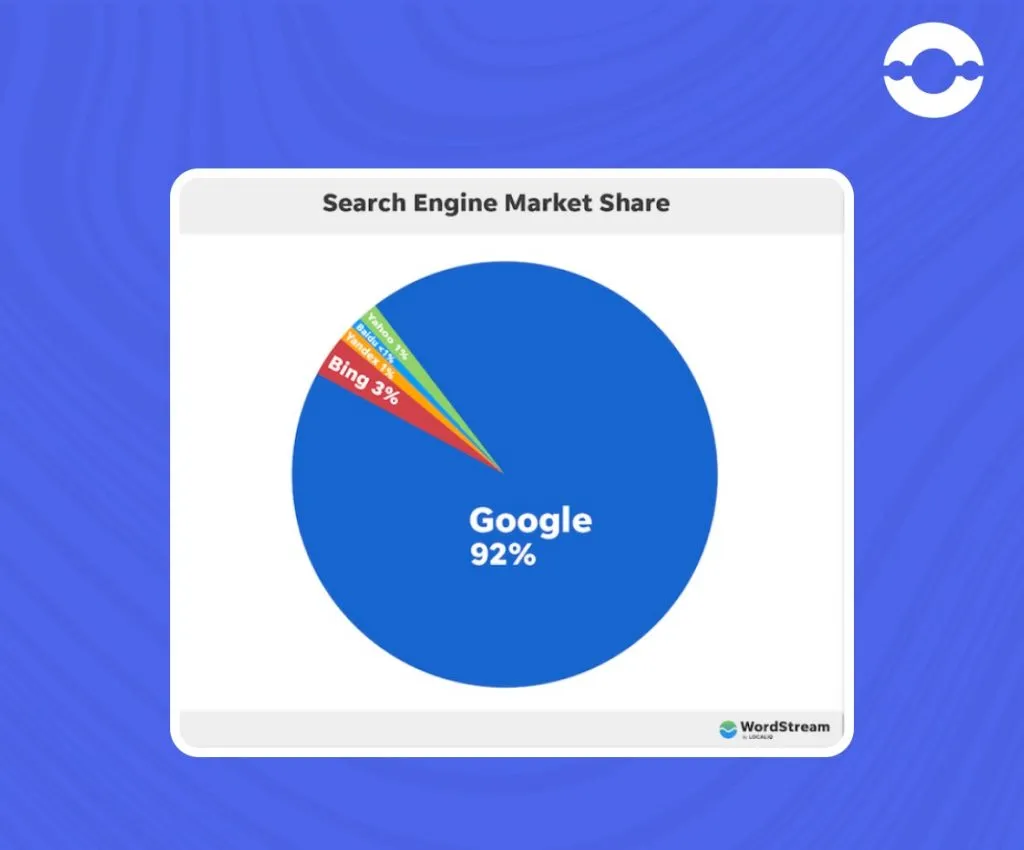
The first part of this blog is pure gold if you are a business with a running website. Even if you don’t have a website yet, you would want to create one to reap the benefits of a search-engine-optimized website.
7 Ways To Optimize The Website For Search Engines
Following are the ways to optimize your business websites for search engines:
1. Publish relevant & interactive content
The holy grail of any search-optimized website is its content. Any website that wants to be ranked at the top of search engines should be careful with the type of content it is putting up on its website.
Content should be relevant, should able to give visitors the required information, and should be engaging and interactive. The attention span of people using the internet is extremely less. Thus, your website should be able to hold a visitor’s attention with relevant inputs and engaging visuals or infographics.
Your content should be able to build a relationship with customers by providing all the right information, in the right place. Do not make it very information-laden but at the same time convey it in a concise manner.
2. Metadata
Metadata consists of Meta Description and Meta/SEO title (Title tag). The former summarizes a website, it provides a curated crux/snapshot of information that is contained on each page that shows up in the results.
It should include the targeted keywords; the length of the description should be up to 155-165 characters and it should be clear and concise.
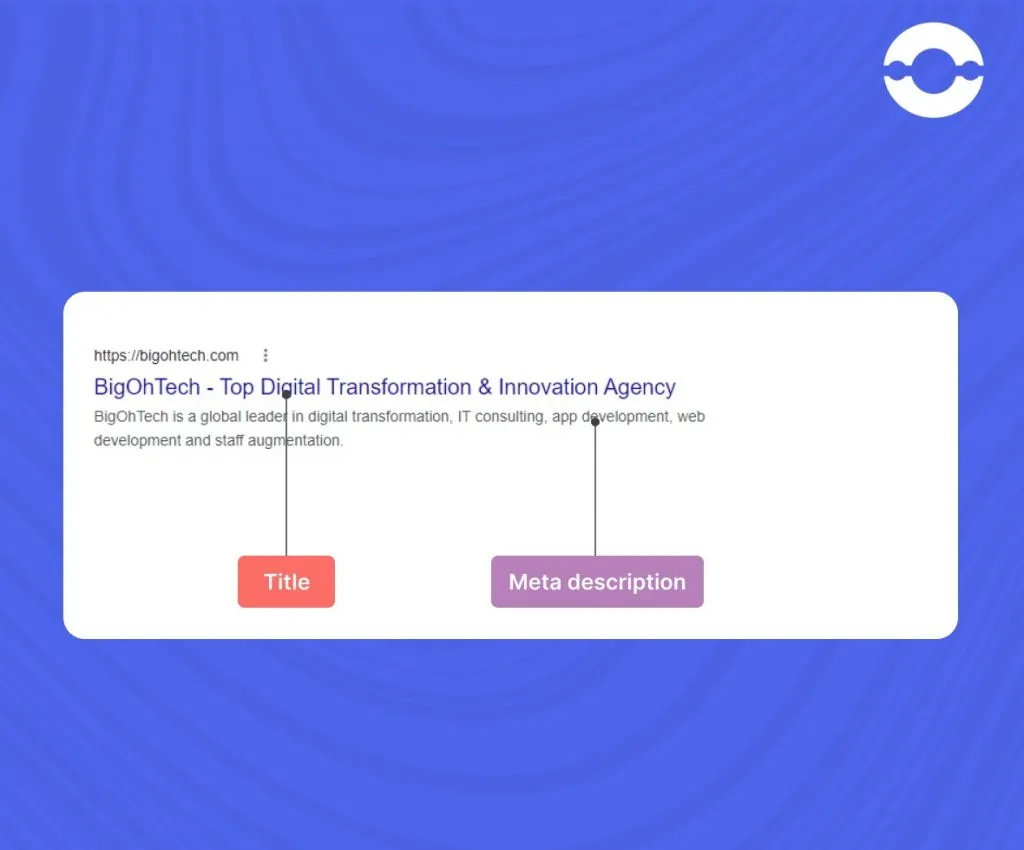
The latter on the other hand refers to the text that is displayed on search engine result pages and browser tabs. It indicates the topic of a webpage. Title tags between 40 to 60 characters have the highest ‘Clickthrough rate’ (CTR).
Title tag should also include keywords, have only one H1 per page, be up to 55-60 characters and indicate and contain value clearly; what to expect.
Both these components can be automatically generated by search engines. However, one should set them in order to incorporate high-ranking keywords related to their business and enhance the ranking of pages for various search queries.
3. Build a responsive website
Responsive web designs assist with optimizing websites for mobile search, enhancing your site’s functionality, loading speed, and design by responding quickly to the user’s device and scaling content accordingly. This facilitates a uniform and consistent user experience across all devices.
A responsive web design also helps solve the issue of duplicate content issues that arise due to the usage of one URL across multiple devices and adjusting the layout and content to fit any screen size.
Google also strongly recommends creating responsive web designs to rank better on the search engine.
4. Sitemap
Always use sitemaps. A sitemap helps to list websites’ most crucial pages, ensuring search engines can locate and crawl even if your website lacks an internal linking structure. They also in understanding the structure of your website, making navigation of the site easier.
Sitemaps are not only useful for search engines but also facilitate the search for a particular page on your website by any visitor.
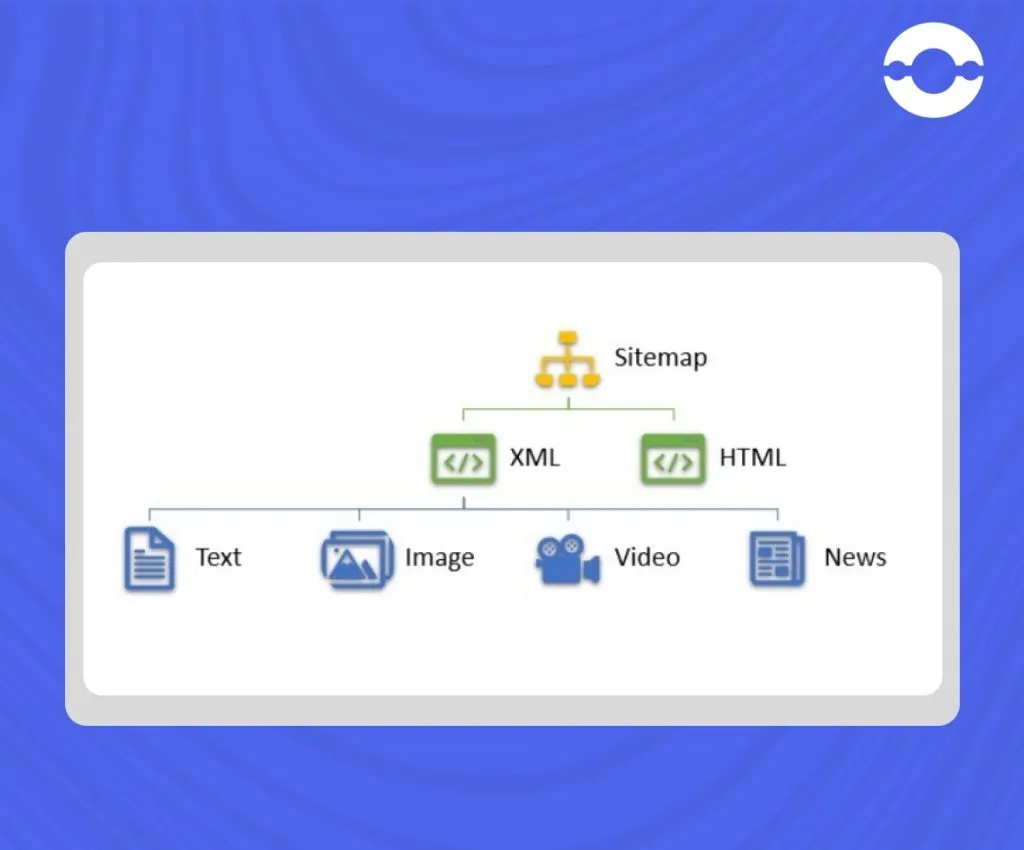
Sitemaps are categorized into two types XML Sitemap and HTML Sitemap.
5. Robot.txt
Robots. txt is a convention that prevents web crawlers from accessing the entire website or some parts of it. It makes the search engine crawlers aware of which URLs the crawler can access on your site as well as the specific pages that can or cannot be indexed.
The primary role of a robot exclusion protocol is to avoid overburdening or overloading your site with requests; it is not a mechanism for keeping a web page out of Google. You need to follow a different process to do the latter.
6. Schema data
Schema markup is a form of microdata. It is found at Schema.org. It is a code that makes your content comprehensive to search engines. Additionally, it helps better represent your content in the search results.
Once added to a webpage, this code creates rich snippets with usually higher ‘clickthrough’ rates than other, regular results. Therefore, it generates more website traffic, making it a powerful weapon.
7. Backlinking is important
Backlinks or link building are elements added to your website that link back to other reliable, trusted, and top-notch websites. This practice helps boost your credibility as your backlinks are cited sources that are relevant to your domain expertise.
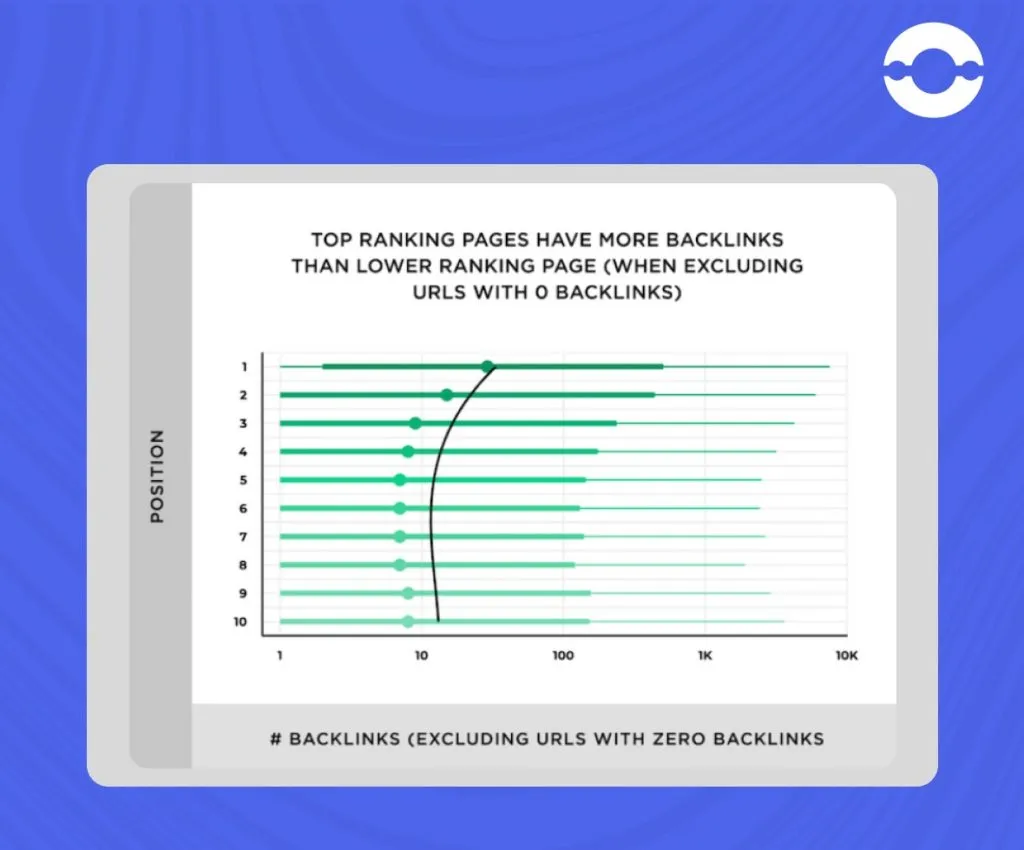
These backlinks also reflect your awareness and extent of knowledge in your area.
However, backlinking should also be done smartly so that the other links do not overshadow your website and you do not get lost amongst other sources.
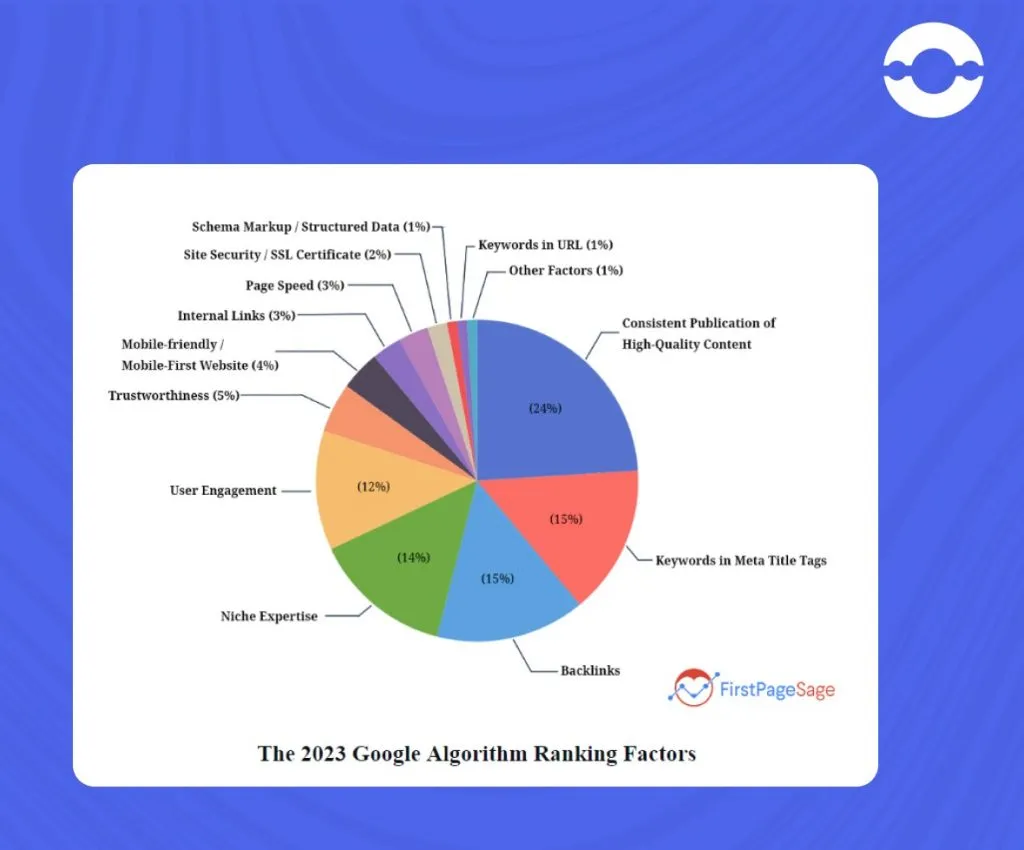
While above-mentioned are the ways to improve the website SEO, there are some automated tools that can help a business decide better about the optimzation needs of the website through an audit.
Let’s thus look at the importance of website audit and the tools used for it.
Why Does One Need To Audit A Website?
Through a website audit, a business identifies all the missing elements that in turn affect its website’s visibility in search engines.
This practice, which is done for marketing objectives, offers insights into a website, its overall traffic, and individual pages and gives out a complete analysis of the same.
Tools Used For Website Audits?
The practice of auditing websites is very time-consuming if done manually. Moreover, there is a window for errors if it is done by web editors or developers, as there are hundreds of pages to be checked for SEO bottlenecks.
For these reasons, there are digital tools that conduct audits for websites. Some of the most popular tools are:
- Google Analytics: This is one of the most trusted and widely used tools. It measures traffic by device type, loading time of each page, setting conversions and goals, highlighting demographics, etc.
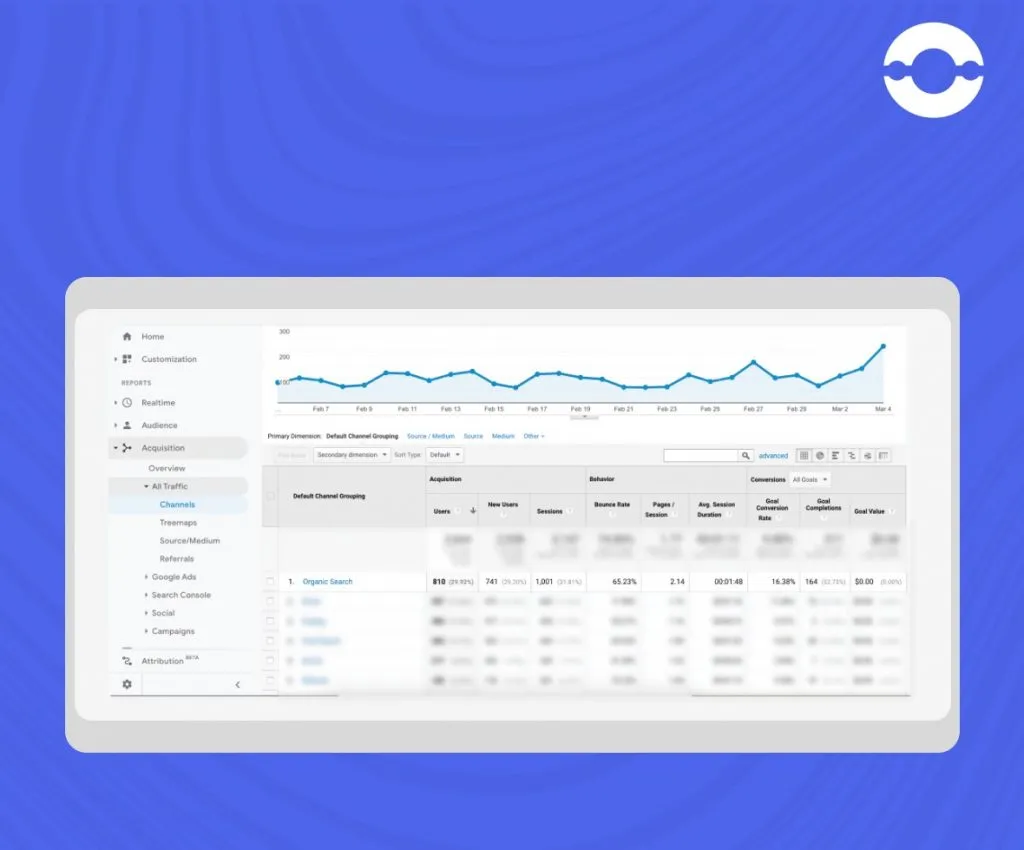
- GTmetrix: This tool helps uncover a website’s performance bottlenecks and features to kick-start the optimization journey for a business.
- Ahrefs SEO Site Audit: It meticulously inspects the keywords for your website along with your link-building quality as well as undertakes comparative analysis for your website.
- BuzzSumo: This tool identifies and reports which keywords are working for the website and which aren’t. It also assists with establishing keyword mention alerts and trending content.
Other common website auditing tools are DeepCrawl, Found, Google Webmaster tool, Marketing Grader, Moz Pro, SEO Analyzer Raven Tools, etc.
While these tools can be used to optimize a website, developers could also ensure that frameworks suitable for SEO are used to build websites.
The last part of the blog thus tells the readers about best web frameworks for SEO for web development.
Best Web Frameworks For SEO
Developers should be aware of the frameworks used to build the websites and check for their SEO capabilities for optimization and tools to work best.
For instance, Angular has limited SEO capabilities, whereas Django controls the website via URLs instead of IP addresses on the server, making things simpler for SEO executives.
Laravel, an MVC framework, and Node.js facilitate the creation of SEO-friendly URLs. Websites build on React.js offer smooth navigation and features like Single Page Application (SPA), making them SEO-friendly.
Parting Words
Therefore, having a website is certainly not enough in this SEO-driven world. A business needs to undertake practices in order to make a search engine-optimized website and maintain the same.
A website optimized for search engines leads search results on search engines, boosts traffic, and hence drives sales and revenue for a business. It may sound like a very ordinary or simple chain of events. However, it includes a lot of elements and should be done strategically for maximum, quantifiable results.
Also Read: Mobile App Development For Business
FAQs:
Optimizing websites for search engines helps a brand build its credibility, enhance its market visibility, bring in web traffic, enhance site usability and user experience and eventually drive business growth.
Some mistakes to avoid to enhance search rankings are:
1. Do not make the content too heavy or do keyword stuffing
2. Avoid redundant and thin content
3. Don’t trade links for backlinking
Fast-loading pages facilitate user navigation and getting the desired results. This leads to good Google reviews and thus better search engine rankings.
Voice search optimization could be used to target long-tail keyword phrases, add conversational language for content, optimize rich answers, etc.
Some tools that could track and analyze your website’s SEO performance are:
1. Ahrefs
2. SEMrush
3. Google Search Console
4. Moz Pro
5. WooRank
SEO helps a website load faster, be easy to navigate due to relevant and concise content, get desired results due to targeted keywords, and respond to multiple screens and devices due to responsiveness, reducing the bounce rate. All these factors enhance user experience.




